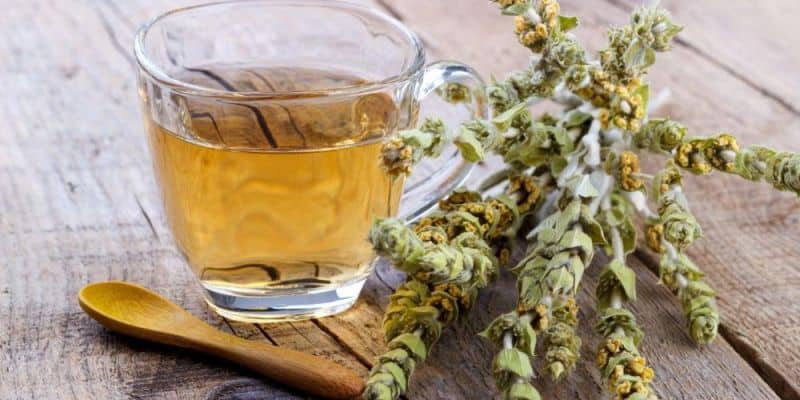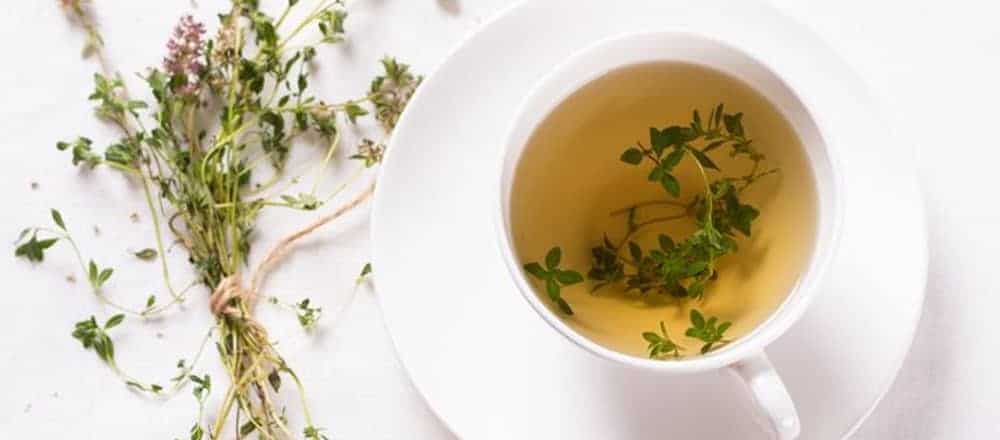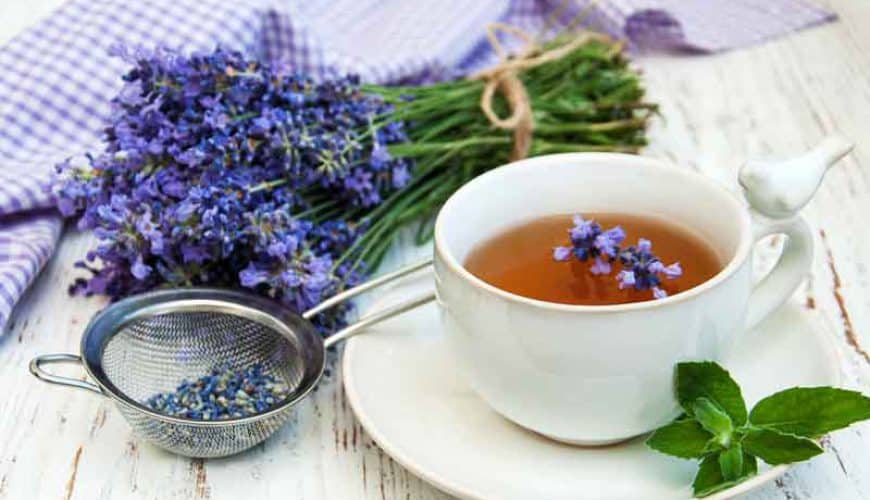Used in traditional cooking and get-well home brews, these herbs commonly found in Greece not only smell and taste amazing, but they also have a lot of remedial attributes.

While travelling to Greece, I discovered the thrill of walking around exploring Greek landscapes and getting a waft of fragrant aromas. Aromatic plants can be found everywhere in any area you travel in Greece. But these plants have a lot more to offer than just simply their beautiful aromas.
For generations, the health benefits of these plants have been recognised. When I am sick with a cold or have a sore stomach, I call my grandmother straight away as she always has a herbal remedy to make me feel better. These plants contain a host of compounds likely to help prevent and combat diseases and conditions such as colds, flus and high blood pressure.
There are so many different herbal teas, and it can get very confusing. To get you started below you will find the five most common plants used for Greek herbal tea.
Before we start though, some websites you can purchase Greek herbal tea from in Australia are:
https://grecianpurveyor.com/collections/greek-mountain-tea-herbs-coffee
https://ariandmaytea.com.au/products/mt-olympus-organic-greek-mountain-tea

Mountain Tea – Τσάι Του Βουνού

The scientific official name of Mountain Tea is Σιδηρίτης (Sideritis), which means ‘made of, or containing iron’. Shaped like a spear with multiple yellow flowers, it grows at higher altitudes, has a mild and sweet aroma and is delicious drunk both hot or on ice and with a slice of lemon. Mountain tea is the most commonly found Greek herbal tea and is often used as a base for more complex blends.
Traditionally, it’s been used to relieve respiratory infections and coughs including those caused by colds, and has been used to also prevent such infections. Mountain Tea is also used to relieve stomach and digestive problems. The small yellow flowers, leaves and stems of Mountain Tea are rich in oils and compounds which are known antioxidants.
Making Mountain Tea is pretty simple. For one serving, add a small handful of the herb to water in a saucepan and bring to a boil. While many other teas are made by pouring boiling water over the tea leaves or herbs, many suggest that bringing the water to a boil with the herb from the start is preferred with this type of tea.
Allow the tea to boil for a few minutes and then remove the pot or saucepan from the heat. Allow to steep an additional 5 minutes and then strain into a mug or cup.
Sage – Φασκόμηλο

With its characteristic ‘fuzzy’ leaves, sage was considered a holy herb in ancient Greece and has long been used for its tonic and anti-microbial properties.
Sage tea is rich in anti-inflammatory and antioxidant compounds. It can promote healthy skin and wound healing as it contains camphor and carnosol. Sage tea can also relieve oral pain and inflammation, as well as bad breath. It is also sometimes used to treat nausea in pregnant women and may reduce hot flashes in menopausal women. The herb is also thought to stimulate brain function, and like its ‘sister herb’ rosemary, boost memory. The herb also has high levels of Vitamin K which helps strengthen bones.
Tea can be made from dried leaves although when brewed alone it’s somewhat peppery aroma can be rather intense, developing a bitterness if left to steep too long. Try adding just a few dried leaves to a mixture of other herbs. Or steep sage leaves in boiling water for 5 minutes, remove the sage leaves and stir in lemon juice and honey.
Linden Flowers – Τίλιο

A Greek folk tale says that if one falls asleep near Linden blossoms, they will be instantly transported to a land of fairies.
Linden flowers have high concentrations of phytonutrients and flavonoids with strong antioxidant functions. The plant is considered helpful in regulating the human nervous system, reducing blood pressure and countering nervous palpitations. It also provides huge relief from common infections like fever, cold, cough, bronchitis and asthma and can act as an expectorant to get rid of congestion. It brings relief from stomach and intestinal problems and acidity.
To make Linden Flowers Tea, steep 1-2 teaspoons in 1 cup of hot water. Steep longer if you want to reap more of the medicinal qualities from the herb. Add a dollop of honey if you prefer your tea sweetened. Drink the tea hot or cold.
Thyme – Θυμάρι

Before going to war, the Spartans were said to rub thyme on their chests, while the Romans added it to their bathwater as it was thought to serve as a fortifying tonic for the entire body. In ancient Greece thyme was considered to be the herb of Aphrodite; according to one legend the plant was created from the tears of Helen of Troy.
Thyme is thought to help relieve indigestion, soothing gassiness and cramps. High in iron, calcium and Vitamin K, thyme is also thought to ease respiratory ailments such as coughing and sinus congestion. It has antibacterial and antifungal properties which protects the body form germs. Thyme tea contains carvacrol which calms the nervous system.
Making thyme tea is as easy as steeping a few thyme sprigs in hot water. You will need about 3 thyme sprigs for 1 1/2 cup of boiling water. If you have a tea ball infuser, you can also chop the thyme sprigs before steeping. Thyme tea tastes great on its own and you can also add a slice of ginger, lemon, and a little bit of honey to the tea. Cold thyme tea can be infused with different fruits. Just add some apple or peach slices to the cold thyme tea for a refreshing drink.
Lavender – Λεβάντα

Dioscorides, the physician and father of Greek herbal medicine, sang the praises of lavender’s calming effects and administered it for stomach upsets and nervous afflictions. Its flowers are often gathered to fill fragrant sachets for lining drawers or pillow cases and protecting linens, but they can also make for a soothing and delicious tea.
Sedative and calming for the nervous system, mood-enhancing and a reliable sleeping aid. Thought to relieve digestive issues and bloating lavender also has antiseptic and anti-inflammatory properties.
To make lavender tea, let the lavender buds steep for anywhere between 3 to 10 minutes. If you let it sit too long and it gets too strong then dilute it with a bit more hot water. However, if you do let it steep too long it will tend to pull out more bitter notes. Serve your lavender tea with a splash of lemon and a dollop of honey.
READ MORE ON GREEK CITY TIMES:
Greek Oregano one of the healthiest and tastiest herbs in the world

